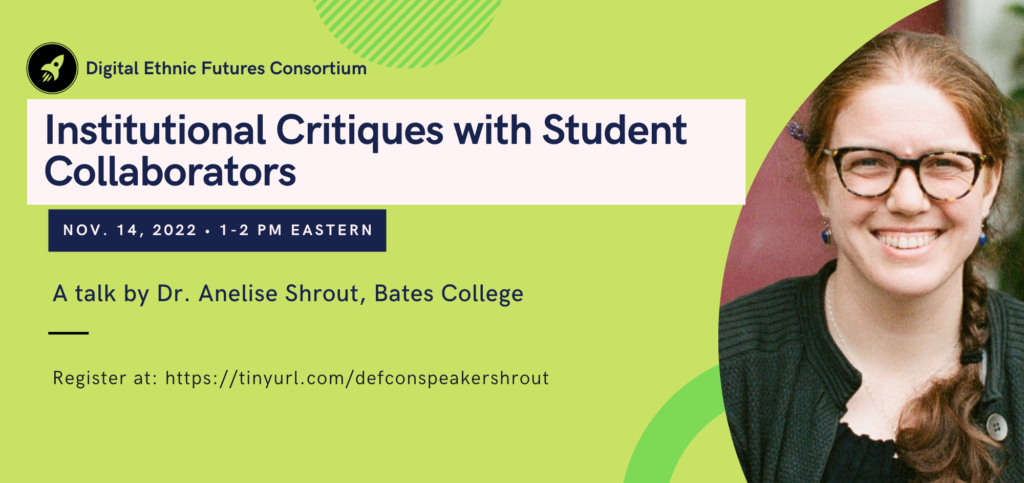
Please join us on Monday, November 14, 2022 at 1pm Eastern/10am Pacific for the DEFCon Speaker Series: “Institutional Critique with Student Collaborators,” with Anelise Shrout. Formerly a faculty member at Cal State Fullerton, Dr. Shrout is a leader in digital history, especially digital history pedagogy. In 2021-2022, she served as a DEFCon Mentor. We’re happy that she’s joining us for this year’s speaker series!
Institutional Critiques with Student Collaborators
Colleges and universities in the United States have complicated histories, often implicated in white supremacy and settler colonialism. Learning to see and critically react to those histories can be a fraught task, for staff, faculty and students alike. For the past four years, Dr. Shrout has taught a class that introduces students to quantitative digital methods as a way to better understand Bates College. Bates was founded in 1837 by radical free-will Baptists who were also abolitionists. It is built on unneeded Wabanaki land. It was funded by the largesse of Benjamin Bates, the owner of a local cotton mill. Throughout the early nineteenth century the Bates Mills purchased cotton produced by enslaved people. That cotton was converted into cloth by vulnerable workers, including children. This talk details the ways that this course introduces students to tools that help them to better understand and to publicly share these histories. It focuses on the practices of student collaboration on difficult or challenging topics.
Bio
Anelise Shrout holds a PhD in history from New York University. She is currently an assistant professor, teaching digital and computational studies at Bates College. Previously, she was an Assistant Professor of History at California State University Fullerton. Her research focuses on the nineteenth-century origins of international humanitarianism, and particularly the ways in which philanthropic donations were used as proxies for arguments about governance in the middle decades of the nineteenth century. She is also interested in how the “internet age” changes the way we interact with sources and with students – and in how the digital humanities shape what we do both as scholars and as teachers.


